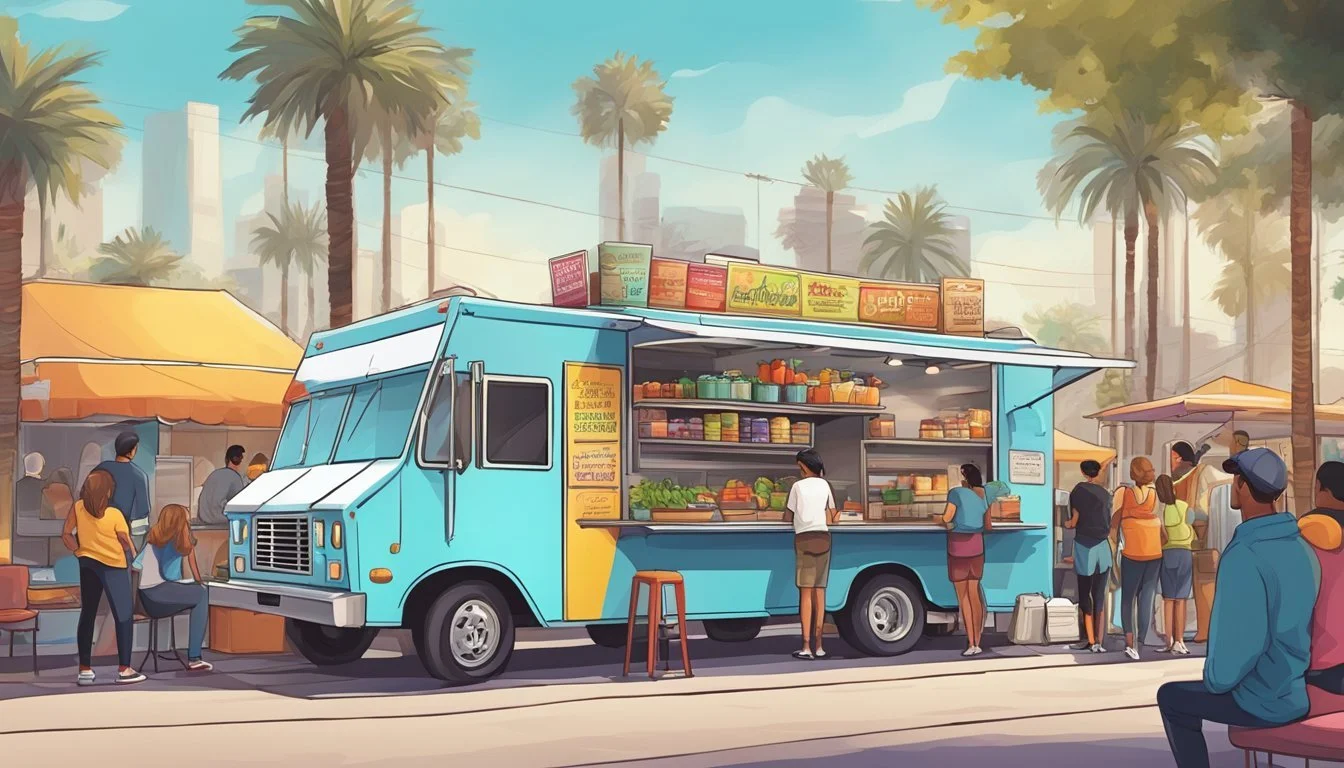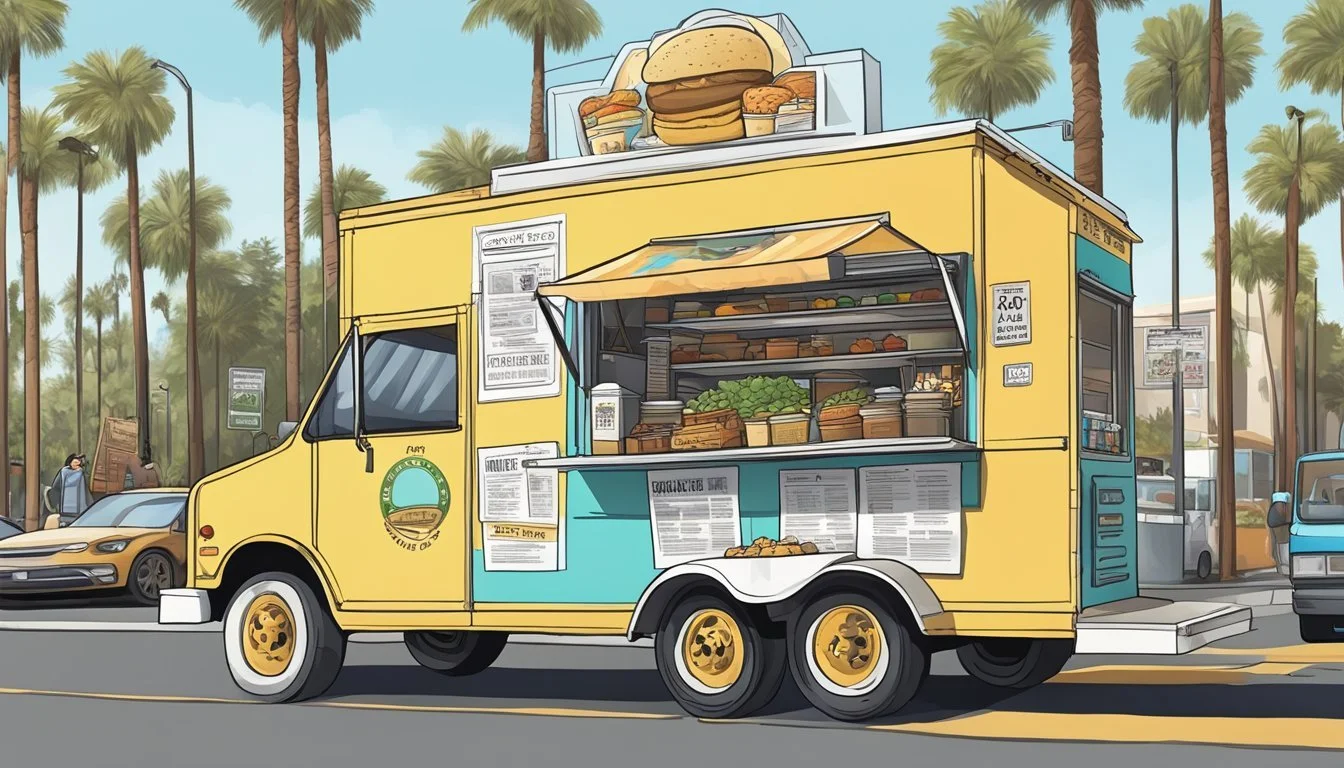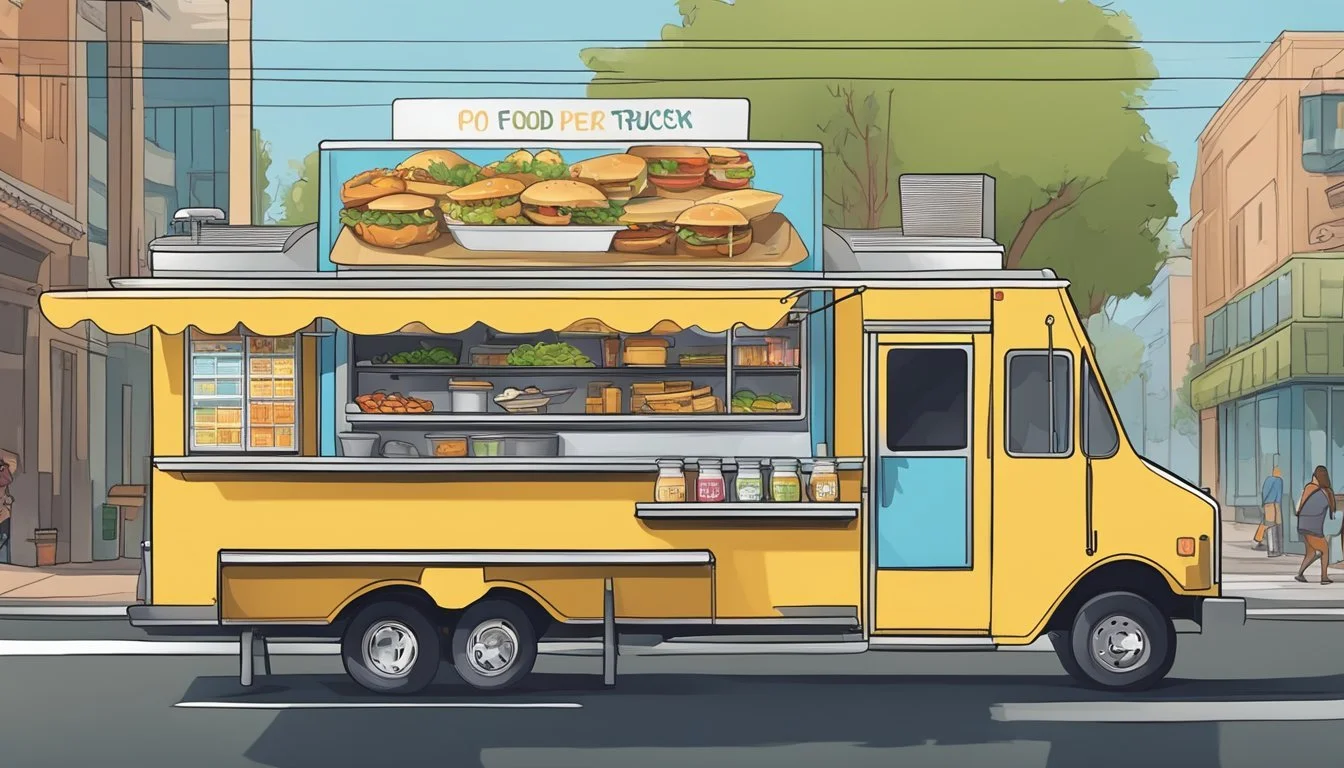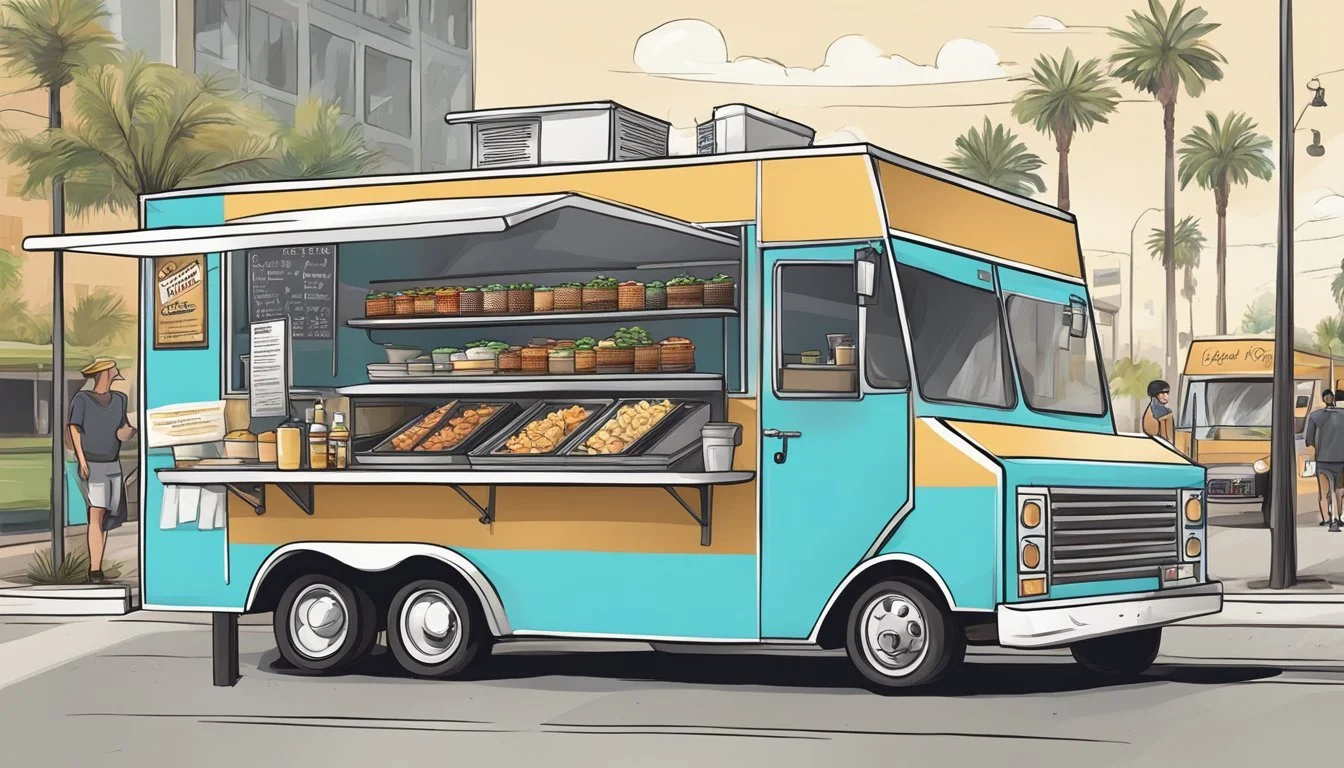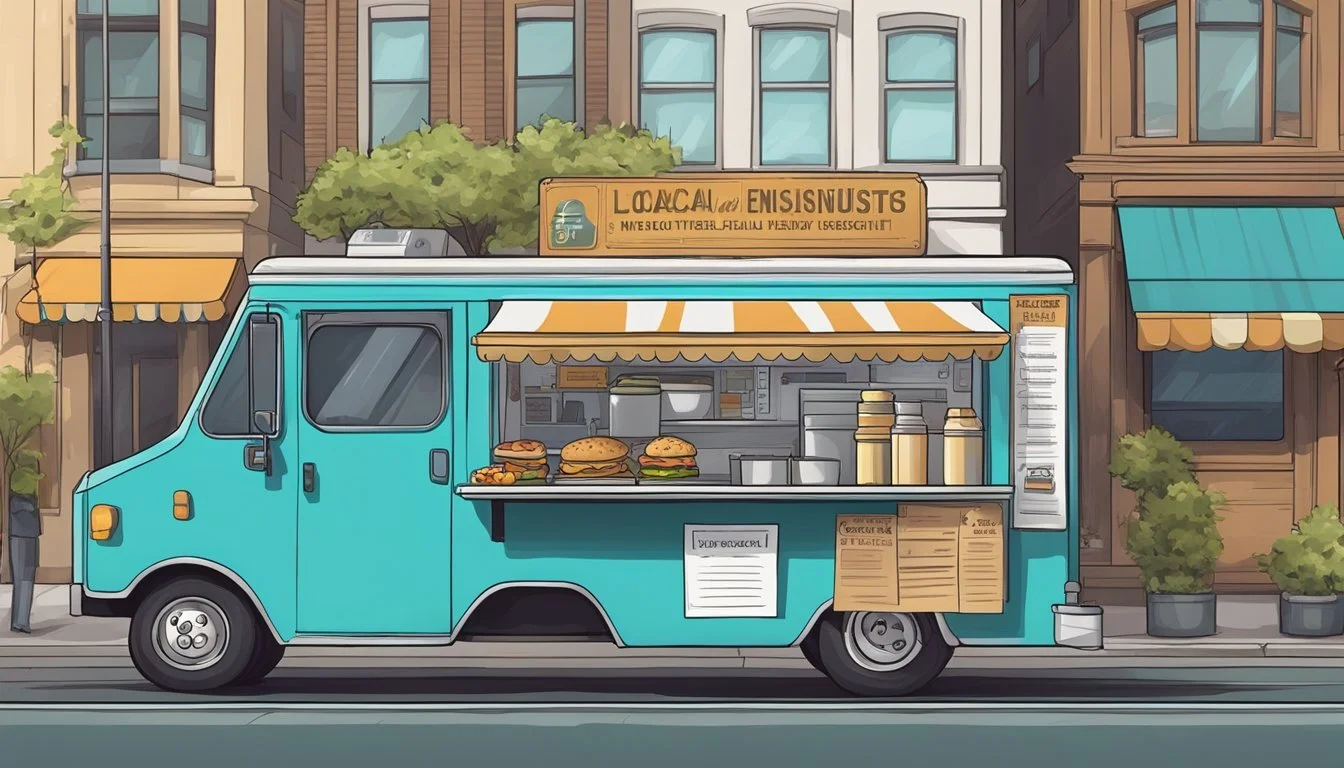Food Truck Laws Anaheim, California
Navigating Regulations for Mobile Eateries
Food trucks in Anaheim, California, operate within a framework of regulations designed to ensure public safety, fair competition, and high standards within the mobile food industry. These regulations encompass a variety of requirements that range from permits and food safety to parking and local zoning laws. Food truck operators must secure the necessary permits before serving the community, which includes adhering to the health codes that govern food handling and preparation.
The City of Anaheim has specific guidelines that address where and how food trucks can operate within the city limits. Compliance with sidewalk laws is critical, and the city has measures in place, such as potential impounding, to enforce these rules. Food truck entrepreneurs must stay informed about the latest ordinances to avoid any disruptions to their business and to provide safe, enjoyable dining options to Anaheim's residents and visitors.
In addition to adhering to local ordinances, food truck operators in California must also ensure that they have the proper vehicle licenses and that someone with a food safety certification is present during operating hours. This certification shows a commitment to health and safety and is an assurance to customers that they are receiving food that has been handled correctly. Establishing a food truck business in Anaheim is a process that requires careful planning and strict adherence to both local and state laws.
Legal Framework for Food Trucks
Before starting a food truck business in Anaheim, it's crucial to understand the interplay between state-level regulations and city-specific laws that govern food truck operations.
State and Local Legislation
California has established a comprehensive body of legislation governing mobile food operations, which sets baseline standards for health and safety. This includes mandates for permits, food handling certificates, and regular inspections. In line with these state-level requirements, local laws further dictate how food trucks operate within a given municipality. Operators must navigate both layers of regulation to maintain compliance. For more on health and safety codes related to mobile food vendors, you can refer to the California Health and Safety Code.
A Business License is fundamental for legal operations, with jurisdictions often requiring additional permits, such as a Mobile Food Facility Permit. Each city within California may have distinctive variations in how these state laws are implemented.
Anaheim-specific Regulations
In Anaheim, food trucks are subject to city-specific regulations that complement California's state laws. This might include designated areas where food trucks can operate, specific hours of operation, proximity restrictions to brick-and-mortar restaurants, and special event permits. It's vital for vendors to adhere to these local rules to avoid penalties.
Anaheim requires food truck operators to possess a valid Anaheim Business License and adhere to any zoning requirements. Furthermore, since Anaheim hosts numerous events and tourist attractions, such as theme parks and sports arenas, there may be exceptional rules applying to vending in those areas. For more precise information on Anaheim’s mobile vending policies, prospective food truck owners should consult the Mobile Food - Trucks and Carts page provided by the Orange County Health Care Agency.
Starting a Food Truck Business
Embarking upon a food truck venture in Anaheim, California, requires a strategic approach, including developing a thorough business plan, choosing the appropriate business structure, and ensuring the business is registered and compliant with local regulations.
Developing a Business Plan
Creating a business plan is a crucial step for potential food truck owners. This comprehensive document should outline all critical aspects such as the food truck concept, target market analysis, menu offerings, and financial projections. Additionally, it assists in navigating the competitive landscape and serves as a framework for securing food truck funding.
Choosing a Business Structure
Deciding on the type of business structure is essential; options include a partnership, corporation, or limited liability company (LLC). An LLC is often preferred for its protection of personal assets and flexibility. Food truck businesses must consider this step carefully, as the chosen structure will have implications for taxes, liability, and ongoing compliance requirements.
Registering the Business
Before hitting the streets, food truck entrepreneurs must register their business, which involves obtaining an Employer Identification Number (EIN) from the IRS for tax purposes. Obtaining the necessary business permits and business license is mandatory to operate legally in Anaheim. Depending on the nature of the food truck, additional permits, such as a vehicle license and health-related permits for food handling, may also be required.
Permits and Licenses
Running a food truck in Anaheim, California necessitates navigating a series of regulatory steps to secure the proper permits and licenses. These ensure that mobile food vendors operate within the legal frameworks set by local and state authorities, focusing on public health and safety.
Basic Licenses and Permits
Every food truck operating in Anaheim must obtain a business license, signifying legal recognition and the ability to conduct business in the city. Additionally, a seller's permit is required for sales tax purposes, and food truck owners should secure this through the California State Board of Equalization.
Health and Safety Permits
The Orange County Health Care Agency oversees the issuance of a public health permit, which ensures that food trucks comply with food safety regulations. It's imperative that food truck owners acquire this permit prior to embarking on any food service. Staff members must also possess a food safety certification, demonstrating their knowledge of proper food handling practices. Operators are obliged to collaborate with a commissary, a licensed commercial kitchen that provides necessary facilities for food preparation and storage.
Additional Required Permits
Food trucks that operate within Anaheim may be subject to additional regulatory requirements, such as the mobile food facility permit from Los Angeles County if they wish to expand their operations beyond Orange County. This permit addresses specific guidelines tailored to mobile food vendors that ensure adherence to county-specific health codes.
For specific inquiries or to obtain permits, vendors should directly contact the appropriate agencies including the health department and regulatory bodies responsible for overseeing food truck operations.
Vehicle Requirements
For food truck operators in Anaheim, California, compliance with specific vehicle codes and equipment standards is mandatory. These codes govern vehicle procurement and setup, as well as licensing and registration, which are paramount to legally operate on the streets.
Vehicle Procurement and Setup
When procuring a catering truck or food vehicle, it is essential to ensure that the equipment inside meets the state’s health and safety regulations. This includes having an installed hand-wash sink, a three-compartment sink for dishwashing, refrigeration units for cold storage, and proper cooking appliances, all of which must be securely mounted to withstand the rigors of travel. The vehicle must also pass a comprehensive vehicle inspection that assesses the safety and functionality of all its components, including fuel systems and food service equipment.
Vehicle License and Registration
Before hitting the road, the food truck must be properly licensed and registered with the California Department of Motor Vehicles (DMV). This involves obtaining a commercial vehicle license for the food truck, akin to any other vehicle. Importantly, certain types of larger vehicles might necessitate a commercial driver's license (CDL). DMV registration ensures that the vehicle is legally recognized for commercial use. Every food vehicle needs to display its valid registration, and in some cases, specialty decals or permits that indicate compliance with health and safety codes, as mandated by California law.
Operational Standards
When operating a food truck in Anaheim, California, vendors must adhere to stringent operational standards. These regulations are in place to ensure public health and safety, including food safety practices, regular inspections, and proper waste management.
Food Safety Practices
Food trucks in Anaheim are required to maintain high levels of hygiene and food safety. They must store food at the correct temperatures and protect it from contamination. Limited food preparation occurs within the mobile food facilities, which must follow protocols for safe handling. Operators must use only state-approved food and ensure their equipment is clean and in good working order.
Inspection and Compliance
The Health Department regularly inspects food trucks to ensure they comply with all regulations. These inspections verify that food safety practices are upheld. In Anaheim, mobile food facilities must be accessible for these examinations, and any issues discovered during an inspection need immediate attention. Compliance with these inspections is mandatory for continued operations.
Waste Management
Effective waste disposal systems are crucial for food trucks. Operators need to manage both solid and liquid wastes in accordance with Anaheim's waste management regulations. They must prevent spillage and contamination around the site of operation. Additionally, food trucks are responsible for the regular removal of waste to designated disposal facilities, ensuring the local environment is not impacted by their operations.
Product and Menu Considerations
When starting a food truck business in Anaheim, California, food truck owners must meticulously select their menu items and decide between offering prepackaged foods and preparing food fresh onboard their trucks. These decisions must comply with local food safety regulations and can greatly impact operational efficiency and customer satisfaction.
Selecting Food Items
Food truck owners should choose menu items that align with their brand, are feasible to prepare in a mobile kitchen environment, and meet the demands of their target market. For example, a food truck focusing on quick and convenient meals may find success in offering hot dogs, as they are a popular fast food item. Complying with Anaheim's food handling regulations, outlined in the Chapter 6.64 of Anaheim Municipal Code, is essential when choosing food items to ensure safety and legality in food preparation and sales.
Prepackaged and Fresh Foods
Prepackaged Foods: These items are typically easier to manage regarding food safety, as they require minimal handling which lessens the risk of contamination. Offering prepackaged foods can be a strategic move for vendors looking to streamline operations but may limit the menu variety.
Fresh Foods: Preparing fresh foods onboard can offer a more diverse and appealing menu to customers, creating a unique selling proposition. Food trucks must follow specific guidelines, such as obtaining the necessary food safety certification and maintaining the requisite food handling permits at all times to ensure the health and safety of their patrons. This includes having someone with a valid food handling permit present at all times when the food truck is in operation.
Location and Parking
Choosing the right location and understanding parking laws are critical for food truck operators in Anaheim. They must navigate local regulations to find viable spots and comply with specific parking restrictions.
Identifying Viable Locations
Food truck operators in Anaheim should look for high foot traffic areas while adhering to local guidelines that dictate where mobile vending units can operate. They are generally allowed to conduct business in various public and private locales but must obtain the proper permits. Key locations include near office buildings, festivals, and special events where quick-service food options are in demand. It is imperative to confirm that these locations are not in violation of any city ordinances prior to setting up.
Parking Regulations and Restrictions
Parking regulations in Anaheim have restrictions that food truck operators must follow. Food trucks are permitted to park in any authorized location, which often includes metered spots, as long as they comply with general parking laws. Regulations require that:
The food truck must be legally parked and not obstruct traffic flow.
Food truck operators should be mindful of designated no-parking zones and street cleaning schedules.
Additionally, food trucks equipped with a Mobile Support Unit—a vehicle used to supply food trucks with additional goods or services—must observe the same parking and operational regulations as the primary vending unit. These support units are also subject to health department regulations and must be in compliance with food safety standards.
Marketing and Growth
The marketing and growth of food trucks in Anaheim hinge on strategic promotion and savvy scaling techniques. Food truck owners must navigate local regulations while applying effective marketing strategies and partnership opportunities to expand their reach.
Marketing Strategies
A food truck's success in Anaheim can significantly benefit from targeted marketing campaigns. Owners should consider leveraging social media platforms like Instagram and Facebook to showcase their culinary offerings with tantalizing images and engaging content. Local partnerships can be a goldmine for marketing, as collaborating with event organizers, breweries, or farmer's markets can introduce the food truck to new customer segments. Additionally, maintaining a consistent brand presence across all platforms ensures that the food truck becomes a recognizable staple within the community.
Expansion and Scaling
When it comes to expansion, a food truck operator might explore additional locations within the city or the broader California area to capitalize on customer demand. It's essential to conduct thorough market research and assess customer traffic patterns before scaling. Food truck owners may also consider scaling by diversifying their menu or by offering catering services for private events or corporate functions, which can lead to increased revenue and brand visibility. To avoid potential pitfalls, it's crucial for owners to be fully aware of Anaheim's food truck laws and regulations that may impact where and how they can expand their operations.
Compliance and Enforcement
Operating a food truck in Anaheim, California, demands strict adherence to legal requirements to avoid any conflict with local enforcement agencies. Meeting the criteria laid out by county regulations ensures food truck vendors maintain the privilege to serve the community. Each food truck must receive department approval before beginning operations, and they remain subject to regular inspections by the county health officer to ensure ongoing compliance.
Consequences of Non-Compliance
When a food truck in Anaheim operates outside the legal parameters set by local and state law, it faces immediate action from enforcement authorities. Penalties for non-compliance may include:
Fines: Monetary charges can be substantial and may compound if violations persist.
Permit Revocation: Continued non-compliance can lead to the food truck's health or business permit being revoked, effectively halting operations.
Closure: In extreme cases, a food truck may be ordered to cease operations indefinitely if it poses a health risk to the public or fails to meet critical health and safety standards.
Enforcement action is often documented, and repeated offenses could lead to more stringent scrutiny from the Orange County Health Care Agency. Food trucks need to ensure they are consistently up-to-date with all the required permits and health standards to avoid such consequences.
Resources and Further Information
For food truck operators in Anaheim, California, navigating the legal landscape effectively is paramount. Key resources for complying with local requirements are available through local health departments and business support services. These entities provide the necessary documentation and certification stickers, ensuring that all standards for food safety and business operation are met.
Local Health Departments
Local health departments are essential for food truck operators, as they issue food handler's permits and the all-important mobile food facility permit. The operators must also make sure their food trucks display the proper certification stickers to show compliance with health regulations. For Anaheim-based food trucks, the Orange County Health Care Agency is the go-to for local health information, providing guidelines and services for food inspection.
Business Support Services
Business support services offer guidance and crucial documentation needed to start and maintain a food truck business. This includes acquiring a business license and managing the food truck's compliance with California's food safety laws. In Anaheim, American Legal Publishing provides a comprehensive, accessible code of ordinances online for informational purposes. Operators can visit American Legal Publishing to understand the specific regulations that govern food handling businesses.
For in-depth details regarding business licenses and permits specific to food trucks, Legion Food Trucks offers valuable insights into California’s legal requirements for food truck owners, including food safety certification exams and the display of food handler’s permits during business hours. Information can be obtained through their article on food truck laws in California.

